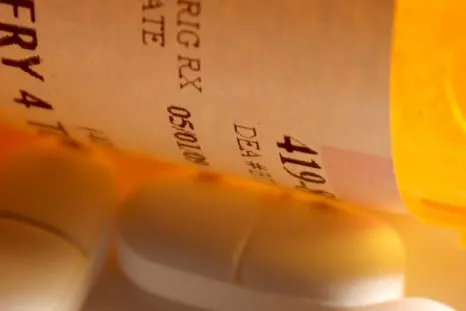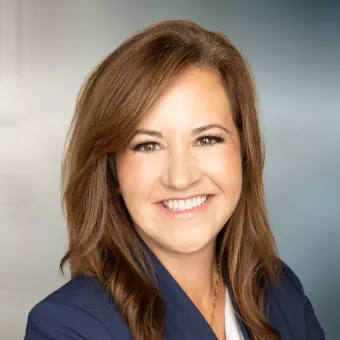The Legal Team
- Kimberly Barone Baden
- Christina M. Behm
- Esther E. Berezofsky
- Louis M. Bograd
- Grace P. Chandler
- Nicole Chaney
- Sara O. Couch
- Mike Daly
- John C. Duane
- Ann E. Rice Ervin
- Nicholas R. Harris
- Ashley J. Hornstein
- Daniel R. Lapinski
- Paul T. Lyons
- Donald A. Migliori
- Chelsea L. Monroe
- Joshua M. Neuman
- Jonathan D. Orent
- Michael J. Quirk
- Joseph F. Rice
- Carmen S. Scott
- Lucy Banks Smith
- Cindi A. Solomon
- Laura K. Stemkowski
- Samuel P. Strother
- Alexandra A. Stulpin
- Jessica F. Tallant
- Fred Thompson III
- Mitchell B. Thornton
- Avery Douglas Upchurch
- Nicholas V. Williams
- Roger M. "Hank" Young, Jr.
Medical Drugs Overview
Every year, thousands of people file medical drug lawsuits after being harmed by defective or dangerous drugs. Drug companies may place a drug on the market without sufficient research and monitoring procedures. They might fail to properly inform and warn patients and healthcare providers about all the serious risks and side effects associated with their drugs.
When pharmaceutical companies try to cover up these potentially dangerous side effects or don’t warn about them, patients suffer. If a prescription or over-the-counter drug has harmed you, let us help you hold the drug manufacturers accountable.
Learn about some of the most significant pending medical and prescription drug lawsuits.
Our active medical drug and wellness product lawsuits
We are currently reviewing the following potential prescription and over-the-counter drug lawsuits:
- Artificial tears
- Baby formula
- Depo-Provera®
- Dupixent®
- GLP-1 drugs (Ozempic®, Wegovy®, Rybelsus®, Saxenda®, Victoza®, Mounjaro®, Zepbound®, Trulicity®)
- Oxbryta®
- Talcum powder
What is multidistrict litigation (MDL)?
What is multidistrict litigation (MDL)?
If you’ve heard of a class action lawsuit, you may also already be familiar with the concept of multidistrict litigation (MDL). Both are ways of handling mass legal actions (or mass torts).
There are key differences, though.
- MDLs are a way of organizing several similar individual lawsuits into one court. MDL cases are typically tried independently, so plaintiffs who win a judgment or settlement receive compensation independently. MDLs often start with test cases called bellwether trials. These cases give attorneys a sense of how the court will react to evidence they present.
- Class action suits are lawsuits filed by a single plaintiff or small group of plaintiffs to represent the interests of a larger group of harmed people. The courts typically divide damages equally among the plaintiffs. In some cases, class action suits can be filed as part of an MDL.
Artificial tears lawsuits
Artificial tears lawsuits
Deaths and reports of serious eye infections were linked to over-the-counter eye drops manufactured by Global Pharma Healthcare. In 2023, people started reporting possible infections after using EzriCare Artificial Tears® and Delsam Pharma® Artificial Tears Lubricant Eye Drops.
Global Pharma issued a nationwide recall of the products in February 2023. The Centers for Disease Control and Prevention (CDC) recommended the drug recalls and began investigating the outbreak of pseudomonas aeruginosa, a germ known to cause hard-to-treat infections.
People are filing artificial tears lawsuits, but no mass legal actions have been taken.
Baby formula lawsuits
Baby formula lawsuits
While baby formula is a critical part of infant health, baby formula brands Abbott Laboratories and Mead Johnson are facing lawsuits alleging that their cow milk-based baby formula brands harmed infants. Parents claim that their babies developed necrotizing enterocolitis (NEC) — a serious gastrointestinal issue — after being fed these formulas.
Though the manufacturers recalled some of the products, many children developed NEC. Plaintiffs allege the diagnoses are linked to the formulas.
As of the beginning of May 2025, 710 parents had filed suit as part of In re: Abbott Laboratories, et al., Preterm Infant Nutrition Products Liability Litigation, MDL No. 3026.
A jury awarded $60 million to a mother whose baby died from NEC. This was the first NEC baby formula lawsuit in the MDL to go to trial. Parents continue to file lawsuits and go to trial.
Depo-Provera® lawsuits
Depo-Provera® lawsuits
Women are suing the maker of Depo-Provera, an injectable birth control medication. A March 2024 study linked the medication to meningioma, a tumor forming in the meninges (membranes near the brain and spinal cord). Previously, the shot had been involved in litigation regarding bone density loss. A Canadian class action on Depo-Provera bone density loss was settled in September 2021.
In early 2025, an MDL was created for this litigation in the Northern District of Florida. The MDL is still in the early stages. Medical drug attorney Carmen Scott holds a leadership position in the MDL.
Dupixent® lawsuits
Dupixent® lawsuits
The prescription-injection drug Dupixent (dupilumab) received FDA approval in 2017 to treat chronic diseases driven by type 2 inflammation, including moderate-to-severe atopic dermatitis (eczema). Eczema is caused, in part, by an overactive immune system, which causes more inflammation under the skin than normal.
However, the prescription warning label has not adequately warned of an increased risk in developing cutaneous T-cell lymphoma (CTCL). CTCL is a rare type of non-Hodgkin lymphoma. There have been several studies published in 2024 discussing reports of CTCL associated with dupilumab. Dupixent was jointly developed by Regeneron Pharmaceuticals, Inc. and Sanofi.
GLP-1 RA lawsuits
GLP-1 RA lawsuits
People are suing the makers of popular diabetes and weight loss drugs after suffering intestinal blockages, severe gastroparesis, vision loss and death. The plaintiffs claim that the drug makers didn’t adequately warn them of potential risks and side effects.
As of May 1, 2025, more than 1,800 people had filed suit against pharmaceutical companies Eli Lilly and Novo Nordisk. These are the companies that manufacture glucagon-like peptide-1 receptor agonists (GLP-1 RAs), which are medications named in the lawsuit. These medications include:
- Mounjaro (Eli Lilly)
- Ozempic (Novo Nordisk)
- Rybelsus (Novo Nordisk)
- Saxenda (Novo Nordisk)
- Victoza (Novo Nordisk)
- Trulicity (Eli Lilly)
- Wegovy (Novo Nordisk)
- Zepbound (Eli Lilly)
These lawsuits are consolidated into a single federal court action, In re: Glucagon-like Peptide-1 Receptor Agonists (GLP-1 RAs) Products Liability Litigation, MDL 3094.
Ozempic, Rybelsus and Wegovy contain semaglutide. Saxenda and Victoza contain liraglutide. Mounjaro and Zepbound contain tirzepatide, and, Trulicity contains dulaglutide.
Oxbryta lawsuits
Oxbryta lawsuits
Sickle cell disease (SCD) is a lifelong, devastating disease affecting millions worldwide. Oxbryta®, a first of its kind medication, was granted accelerated approval by the Food & Drug Administration (FDA) for SCD treatment in 2019. However, less than five years after its approval for sale on the U.S. market, Oxbryta has been recalled. If you or a loved one have experienced serious adverse side effects, you may be eligible to file an Oxbryta lawsuit.
Talcum powder lawsuits
Talcum powder lawsuits
Talcum powder isn’t a “medical drug,” but it was a part of many people’s daily wellness routines for decades. Unfortunately, studies link talc-based products to several types of cancer, including ovarian cancer, endometrial cancer and uterine cancer.
As of May 1, 2025, more than 58,200 plaintiffs had filed suit in federal court for the In re: Johnson & Johnson Talcum Powder Products Marketing, Sales Practices and Products Liability Litigation, MDL No. 2738. The defendants in the talcum powder lawsuits include Johnson & Johnson and its subsidiaries. Previous defendants include talc mining operations and talc trade organizations.
Zinbryta® lawsuits
Zinbryta® lawsuits
Zinbryta (daclizumab) is a treatment for multiple sclerosis (MS) patients. Drug manufacturers AbbVie Inc. and Biogen Inc. voluntarily withdrew Zinbryta from markets worldwide in 2018 as doctors raised concerns about the drug being linked to serious brain disorders.
There is no MDL related to Zinbryta at this time. If you’ve been diagnosed or a loved one has been diagnosed with a serious inflammatory brain disorder after using Zinbryta, you may be eligible to file a Zinbryta lawsuit.
Inactive medical drug lawsuits
Inactive medical drug lawsuits
Medical drug attorneys at Motley Rice have extensive experience with complex Big Pharma cases involving dangerous drugs. Our law firm has represented plaintiffs in cases involving:
- Belviq® and Belviq XR® (lorcaserin): Belviq and Belviq XR, which is Belviq’s extended-release version, are weight loss drugs and have the generic name lorcaserin. Pharmaceutical company Eisai withdrew these medications from the U.S. market in 2020 and later voluntarily stopped selling them in the U.S. at the FDA’s request.
- Elmiron is used to treat chronic bladder pain and inflammation related to interstitial cystitis. The medication is also known as pentosan polysulfate sodium (PPS). It’s manufactured by Janssen Pharmaceuticals. Nearly 2,000 people who used the drug Elmiron are suing, alleging that the prescription medication impacted their vision. The U.S. Food & Drug Administration Adverse Event Reporting System (FAERS) has received more than 5,300 reports related to Elmiron, including 31 deaths. Some of these cases involved permanent vision loss. There are 1,028 pending cases in federal court as of May 1, 2025. Some Elmiron lawsuits have settled.
- Incretin mimetics: Some diabetes medications classified as incretin mimetics may have made people three times more likely to develop pancreatic cancer. These drugs included Byetta®, Janumet® and Januvia®.
- Proton pump inhibitors (PPIs): Proton pump inhibitors (PPIs) are a medication made to treat health issues related to the body’s overproduction of stomach acid. Research links PPIs to serious conditions such as acute interstitial nephritis, chronic kidney disease and kidney failure. Plaintiffs’ attorneys claim PPI manufacturers didn’t adequately warn people of the risks.
- Stevens-Johnson syndrome associated drugs: Stevens-Johnson syndrome (SJS) is a serious skin condition linked to common painkillers. In some instances, even a regular dose of common medications can cause a reaction that might lead to blindness, hearing loss, organ failure or death.
- Testosterone Replacement Therapy: More than 7,000 people filed suit as part of In re: Testosterone Replacement Therapy Products Liability Litigation, MDL No. 2545. Plaintiffs alleged physical harms that included blood clots, arterial cardiovascular injuries and even death. Defendants in the TRT lawsuit included pharmaceutical companies such as AbbVie Inc., AbbVie Products LLC, Abbott Laboratories, Inc., and Unimed Pharmaceuticals, Inc. (collectively, AbbVie). These companies manufactured the TRT product AndroGel. Another drug maker, Actavis, agreed to settle approximately 500 claims in the MDL. Verdicts included $150 million in punitive damages awarded to an Oregon man who had a heart attack after using AndroGel. The MDL is no longer active.
- Xeljanz® (tofacitinib) JAK inhibitors: Xeljanz and Xeljanz XR® are arthritis and ulcerative colitis medications. In 2021, the U.S. Food & Drug Administration released its review of heart-health risks related to Xeljanz and Xeljanz XR. The results showed that the medications could lead to blood clots and death, even at lower dosages. The agency required the manufacturers of drugs in the same class to update their warning labels, including the risk of cancer.
- Zantac® (ranitidine): Tens of thousands of people in the United States have sued companies that manufacture the heartburn drug Zantac, alleging that it can cause bladder, colorectal, esophageal, liver and stomach cancer.
- Zofran: Intended to treat chemotherapy-related nausea and vomiting, Zofran may have an increased risk of birth defects.
- Zoloft: Plaintiffs filed lawsuits for the popular antidepressant after it was linked to an increased risk of birth defects.
We are no longer accepting clients for these pharmaceutical lawsuits.
What our drug company lawsuit experience means for you
What our drug company lawsuit experience means for you
We understand the potential pain, serious side effects and health problems these defective drugs can have on you. When you are harmed, so is your family. We approach each case as a unique situation and will work with you to help you understand the often complex legal and scientific aspects involved in medical litigation.
As the business and science behind medical industries grow increasingly complex, we are committed advocates for people suffering from these bad drugs, and we work to bring about change to the pharmaceutical industry.
If drugs or medical devices intended to help you or a loved one made you sick, our team can help by:
- Identifying potentially harmful medicines and devices
- Investigating whether the medicine is linked to your illness or injury
- Reviewing the manufacturer’s compliance with FDA regulations
- Examining whether the manufacturer's warning to you about potential side effects was adequate
- Identifying other issues that could affect your potential claim
- Uncovering potential manufacturing defects or issues with the manufacturing process
- Reviewing the applicable statute of limitations
Contact a medical drug lawsuit attorney if Big Pharma made you seriously ill.
Do not stop taking a prescribed medication without first consulting your doctor. Discontinuing a prescribed medication without your doctor’s advice can result in injury or death. Depo-Provera, Dupixent, Elmiron, Ozempic, Wegovy, Rybelsus, Saxenda, Victoza, Mounjaro, Zepbound, Trulicity, Byetta, Janumet, Januvia, Xeljanz, Zantac, Zoloft and Zofran remain approved by the U.S. Food and Drug Administration.
Contact Us
If you think you have a Medical drugs claim, consider contacting an attorney to get more information and find out your legal options.
Connect with a LawyerYou can also contact us by calling1.800.768.4026

